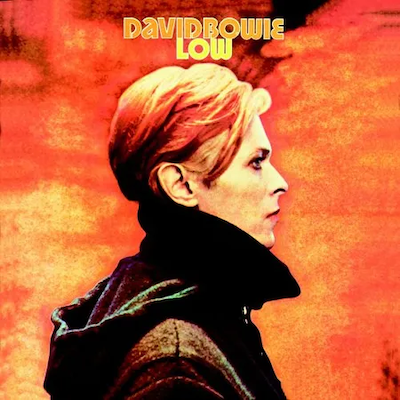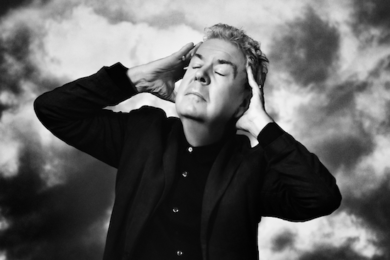2. David BowieLow

I probably listen to this album about once or twice a month, at least, when I’m driving the car. I still discover things about it. I didn’t really identify much with Bowie before Low – you know, the floppy hat and the flower dressing things – that stuff didn’t really affect me. I mean, I loved ‘The Jean Genie’ and ‘Rebel Rebel’ and all those things, but I hadn’t really got to grips with them. When this came out, I’d been listening to Cluster and Can and suddenly I found a way in to that sound. I was 18, so it opened my mind to a lot of things. I remember going to a party and hearing ‘Sound And Vision’ playing and thinking, ‘Wow!’ Because it’s a great song and a great single, but it’s weird as fuck! And I was thinking, ‘This is how you could be a weirdo and still make people like it,’ you know? And so that was the connection for me.
The second side took me a long time to get into, obviously, because it was difficult. Every one of those songs is hardly a song. They’re all like little snippets, and they just come flying in and out of nowhere. And Dennis Davis as well – I loved his drums. So that informed a lot of what happened for Seventeen Seconds and Faith and Pornography because I was forever searching to find the Eventide harmonizer and get the right sound. I can remember sitting there with [producer] Mike Hedges and we were furiously punching buttons and trying combinations going, ‘How did he do it? We can’t call him up because he’s not going tell us!’ I didn’t really want it to sound the same anyway, but it opened up your mind to what you could do.
That’s the point where I started buying a lot of electronic drum stuff, which was very primitive; you know, a speaker stuck inside a metal case, and if you hit it too hard then it just stopped working. If I look at all these albums, nearly every one of them is a signpost to me for how I ended up where I ended up.


